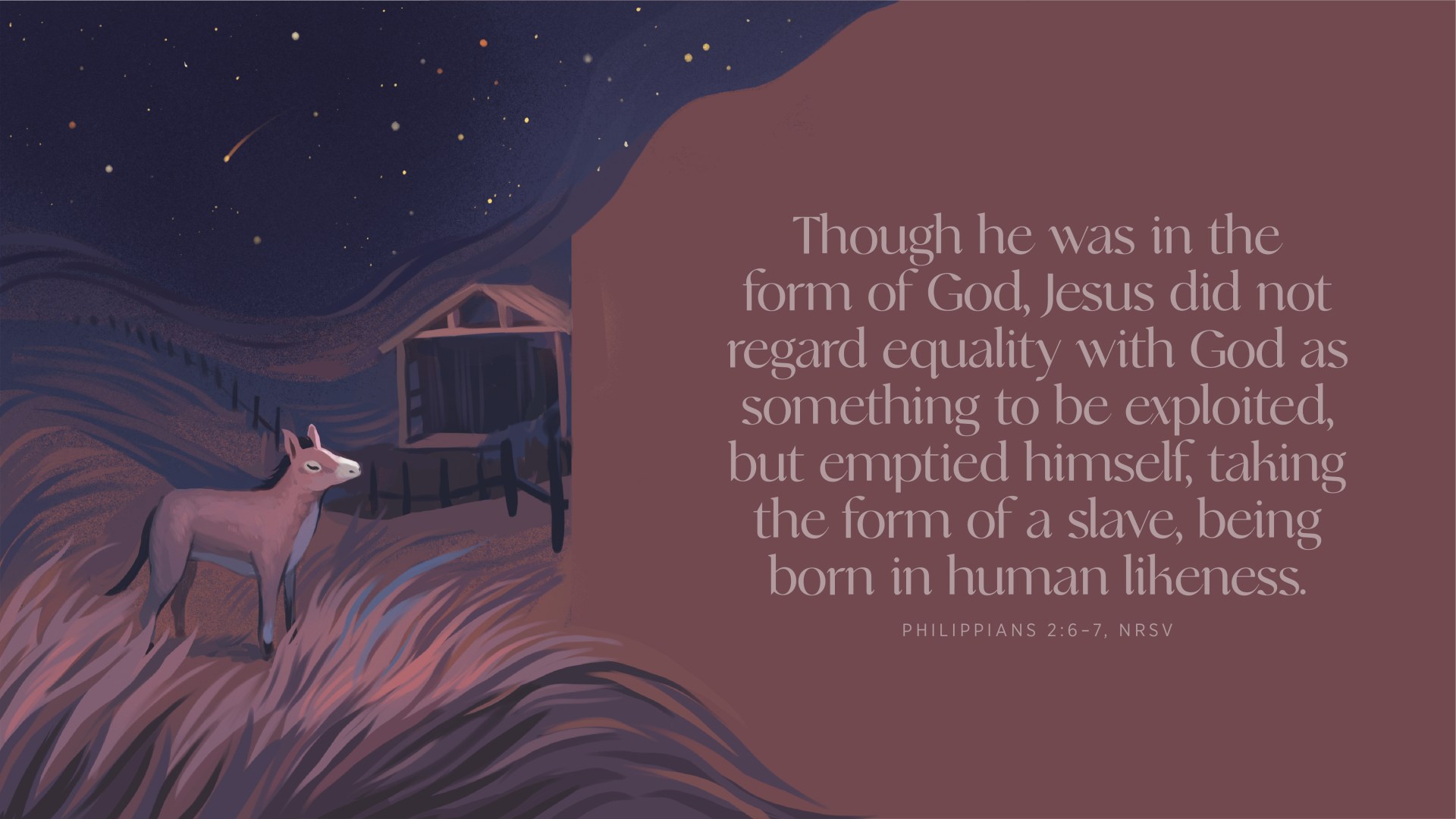Read Philippians 2:5–11.
One common way of understanding the beautiful hymn of praise to Jesus Christ in Philippians 2:5–11 is that it shows us an utterly incomprehensible paradox: The mighty Son of God, who, together with his Father, brought creation into being, subsequently deigned to become a lowly human being—the equivalent of a powerful monarch being reduced to a scuttling beetle.
This way of reading Philippians 2 emphasizes the mismatch between the Son’s pre-incarnate glory and the humiliation he underwent during his earthly life. The little word though in most English translations has been the vital clue for this interpretation: “though he was in the form of God, [Jesus] did not regard equality with God as something to be exploited, but emptied himself, taking the form of a slave, being born in human likeness” (vv. 6–7, NRSV throughout, emphasis added). Despite sharing equality with God the Father, nevertheless Jesus the Son chose to give up that status for us.
That’s a plausible interpretation of Paul’s words, certainly. But the original language is ambiguous, and it’s possible to translate it differently, leaving out the contrastive connector though. Paul might easily have meant something subtly different: because he was in the form of God, therefore Jesus emptied himself.
In the first way of reading it, there’s something fundamentally incommensurate between the Son of God’s glory and his self-emptying. The former is understood in spite of the latter. And there’s obviously much truth in that way of interpreting Paul’s words, which underscores for us the cost God agreed to pay in order to draw near to us.
But in the second way of reading Paul’s hymn, there’s something mysteriously congruent between the eternal splendor of God’s Son and his voluntary self-abnegation in the Incarnation. The latter reveals or explains what the former is really all about, and it turns out that God’s character is self-giving love “all the way down,” so to speak.
In other words, if we want to understand what Jesus the Son’s equality with God the Father really means—what it looks like when it’s translated into the form of a human life—then we should look to that tiny baby on Mary’s breast, that forlorn figure on the cross of Calvary, and that tenderhearted gardener who speaks peace to his friends that first Easter morning. By living for us, dying for us, and rising for us, Jesus not only reveals true humanness to us—he shows us what God’s deity fundamentally amounts to.
Wesley Hill is a priest serving at Trinity Episcopal Cathedral, Pittsburgh, Pennsylvania, and an associate professor of New Testament at Western Theological Seminary in Holland, Michigan.










